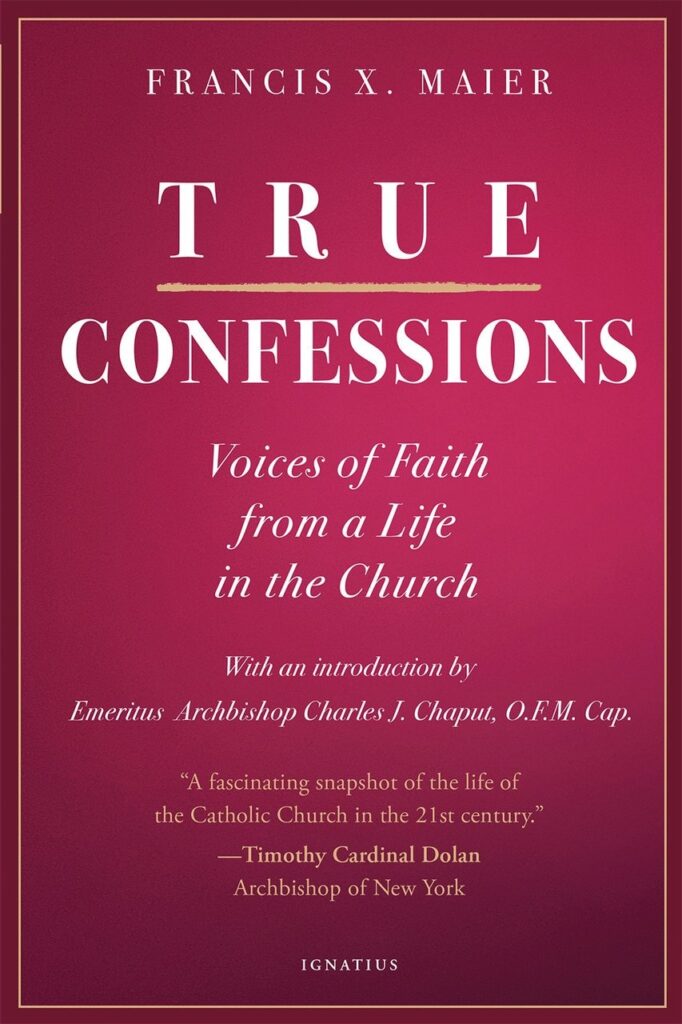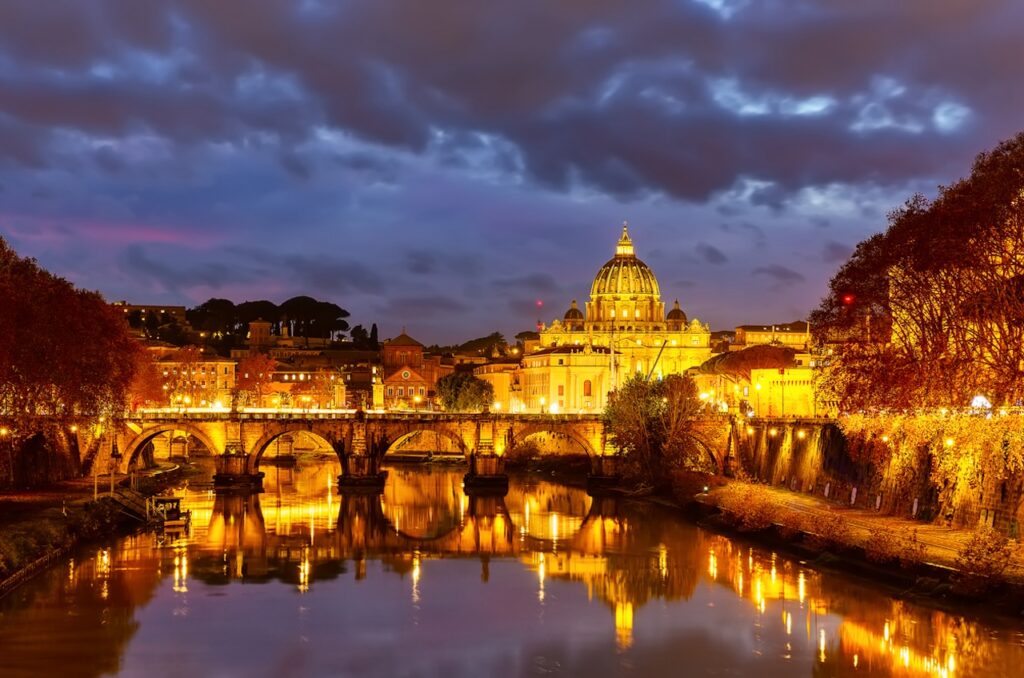Parishes closing or consolidating. Fewer and fewer people at Sunday Mass. An aging corps of priests and not enough new vocations to take their place. These and similar items combine in a pattern of downsizing by the Catholic Church nearly everywhere in America today.

Other churches are having the same problems. No one has a formula for halting, much less reversing, what’s happening. But people who know the Catholic Church well can provide informed assessments along with shrewd guesses about what lies ahead.
A generous helping of assessments and guesses is now available in a challenging book called True Confessions (Ignatius Press, $24.95). It is the work of Francis X. Maier, a senior fellow at the Ethics and Public Policy Center in Washington, who for 23 years was a senior aide, first in Denver and then in Philadelphia, to now retired Archbishop Charles J. Chaput, a Capuchin Franciscan, and before that was editor-in-chief of the National Catholic Register.
The book contains edited interviews with 103 bishops, priests and others including lay women and men, all of them knowledgeable about the Church’s inner workings and external problems. Archbishop Chaput contributes an introduction and an interview, and Maier provides useful running commentary.
But why “confessions?” As Maier explains, in religious language one meaning of confessor is someone who “bears testimony to the faith.” Each of the book’s interviewees was chosen precisely to “confess” how he or she sees the Church’s situation now.
Summing up the results isn’t easy given the variety of responses, but there is virtual unanimity that the Catholic Church is undergoing long-term institutional shrinkage, with no end in sight. The crisis is real, and the quarter-century ahead is sure to bring hard times as measured by resources, attendance, infrastructure and social influence.
In the past, one bishop says, the Church was served well by its ever-expanding network of parishes, schools and other institutions, but now some “feel more like dead weight.” Others who share that view see shrinkage as a potential blessing in disguise by reshaping American Catholicism as a smaller but more united faith community.
“We don’t want to be foolish and just blow things up,” the same bishop adds. “But in looking to the future, everything should be up for discussion about whether and how well it fits into our mission. Difficult times are difficult.”
Even so, others interviewed caution Church leaders against what the president of an investment advisory firm calls “an ethos of managed decline.” And a lay woman insists, “We underestimate our strength. The Church in the United States is much less corrupt with much more freedom and many more resources than in many places.”
The book contains repeated, strong criticism of American secular culture and the corrupting effect of the media. An anonymous public official points to an alarming decline in the moral standards of ordinary Americans while blaming “mass entertainment, which has had a damaging effect on families.”
That this is an unhealthy environment for religion hardly needs saying. But the biggest problem, cited often in True Confessions — and presumably not unrelated to the state of the culture — is that many Catholics simply haven’t experienced genuine conversion to Christ.
Another complicating factor, as interviewees see it, is government hostility to the Church over issues like abortion and same-sex marriage. Some speak bitterly of President Biden for flaunting his Catholicism while supporting abortion and gay rights. “I never thought I’d put the prayer to St. Michael the Archangel on my medicine cabinet mirror,” says a bishop. “Now I pray it every morning when I shave.”
(The book’s interviews took place between late 2020 and mid-2022. Since then, Donald Trump’s legal troubles and reelection campaign have shifted media attention to him. If the interviews were conducted now, Trump likely would get his share of criticism.)
Certainly the Church’s leaders get theirs. Although criticism of Pope Francis is generally muted, those interviewed complain of mixed messages from Rome. And there is substantial criticism of America’s bishops, some by bishops themselves.
“They’re nearly all good, faithful men,” one says. “Maybe 10 percent of the guys have bad ideas, and another 20 percent or 30 percent are mainly well-meaning managerial specialists. But the political environment in the United States today is forcing all of us to wake up to the new realities. Men who were wishy-washy and could hide from some of the hot issues before — well, nobody can hide anymore.”
The lingering effects of the sex abuse scandal trouble some bishops. Others see problems with their national episcopal conference, the USCCB. Citing that body’s internal tensions, one says, “We’ve gone backwards regarding the relation of bishop to bishop.”
Non-bishops also criticize the hierarchy, but some are understanding. Archbishop Chaput’s former secretary says critics don’t realize that a bishop who takes his vocation seriously must be on the job “seven days a week, all day long.” A large donor to the Church speculates on a possible “systemic” flaw that creates unrealistic expectations of bishops but “inhibits what needs to be done.”
A number of those interviewed speak well of Catholic schools and express hope they survive. But it’s different with Catholic higher education. A non-Catholic college professor recalls sending one son to a Catholic university and another to an Ivy League school — and the Catholic institution proved more secular than the secular one.
To lighten the gloom perhaps, the book includes a chapter describing several apostolic groups with successful formation programs in leadership and evangelization.
What to make of all this? True Confessions mostly leaves that unanswered.
But Archbishop Chaput hazards a response by recalling two saints — Francis of Assisi and Augustine. Of Francis, he writes, “God renewed the Church of his day through his service,” while Augustine reminded his people repeatedly that complaining about the times is useless. “We are the times,” the Archbishop says. “We make the times. And it’s up to us to make them better.”

